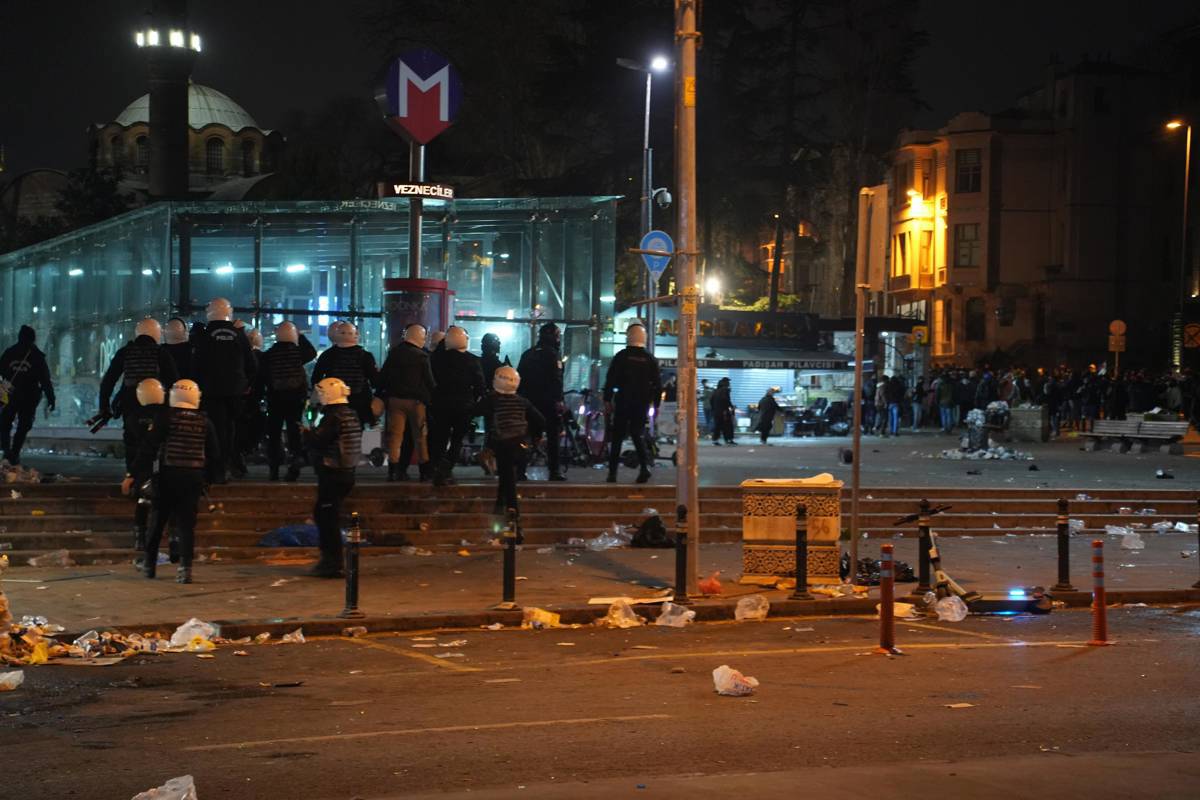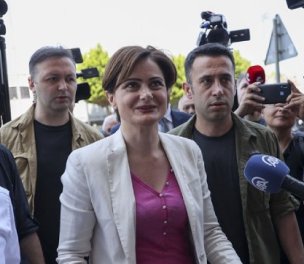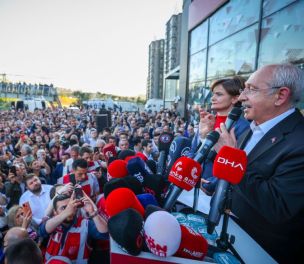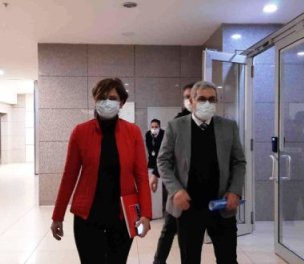Canan Kaftancıoğlu: We are not aggrieved, we are righteous
.jpg)
Click to read the article in Turkish
The documentary "18" about the first women members of the Grand National Assembly of Turkey (TBMM) was screened yesterday (May 25) at the French cultural Center in Beyoğlu, İstanbul. Produced by the Association for Supporting Women Candidates (KA-DER), the documentary focuses on the political journey of the first women deputies of the TBMM in the 1935 elections.
It depicts demands of the women in Turkey for the right to elect and being elected since the late Ottoman era.
In the light of experiences such as the Women's People Party (KHF) and the Turkish Women's Union and various magazines published by women, the period that lead to 1935 and women's representation in the parliament afterwards are narrated by figures such as Fatmagül Berktay, Aynur Demirdirek, Ayşegül Yaraman, and Nuray Karaoğlu.
Footage of Hatı Çırpan (Satı Kadın), Benal Nevzat, Mebrure Gönenç, Nakiye Elgün, Mihri İffet Pektaş and Huriye Baha Öniz among the 18 women deputies are shown with the narrations of historians, journalists, and families.
"They affected our struggle"
Having attended the event, Canan Kaftancıoğlu, the İstanbul provincial chair of the main opposition Republican People's Party (CHP), spoke to bianet about women's participation in politics.
Recently, the Court of Cassation, the top appeals court of the country, upheld the prison sentence given to Kaftancıoğlu because of her social media posts from up to 10 years ago and imposed a politican ban on her.
Kaftancıoğlu stated his word by saying, "We commemorate all the women who struggled for women in this land with respect and love," and added:
"There is a reality that we all know: The women's struggle at that time was a struggle that affected the future and the centuries that would follow. If we can grow the struggle today, we can do so thanks to the struggle of these women in the past.
"It is valuable in this sense. In this sense, we, women, have even greater responsibilities. Because it is necessary to fight more effectively against the ruling power, reversing the rights that women gained by that struggle. The women's struggle is like back and forth, but it is permanent.
"We know that being a woman on this land is difficult. It is difficult to be a woman in every aspect of life. We have our share of these difficulties in politics as well. We, women, are growing the struggle of the next century by organizing and solidarizing and growing solidarity.
"We will struggle for our rights"
"I would like to say this about women's struggle: From time to time, this struggle is addressed in terms of grievances. I can't internalize this; as women, we are not aggrieved, we are righteous. We will struggle not through our grievance, but through our righteousness. I see that the women's struggle is growing and I think it is closer to getting results."
"There are no weak women"
"There are no weak women. There are women who have been weakened by the system. Young women feel weak in politics. They shouldn't feel weak, they should feel strong; and they should participate in politics when they feel this.
"Yes, they will struggle, they will be prevented, there will be obstacles in front of them, but they will progress. We, the women, know that when we know that we are fighting for, women and society win. Women win in the end.
"Women should absolutely go into politics. To whatever political group they feel closer to, they should join them. It is very important that there are women in all political parties. Because those parties transform and improve.
"It is valuable to have women who work, produce and object if necessary in political parties rather than men who talk a lot but say nothing."
The documentary
Barış İnce wrote and directed the 40-minute documentary prepared with the message "The Women Who Opened the Way." Fide Köksal and Hasan Barış Gemici composed the soundtrack. Metin Kaya, a winner of the Golden Orange and SİYAD Honor Awards, was the cinematographer. (EMK/VK)
Preliminary probe into police violence during İmamoğlu protests
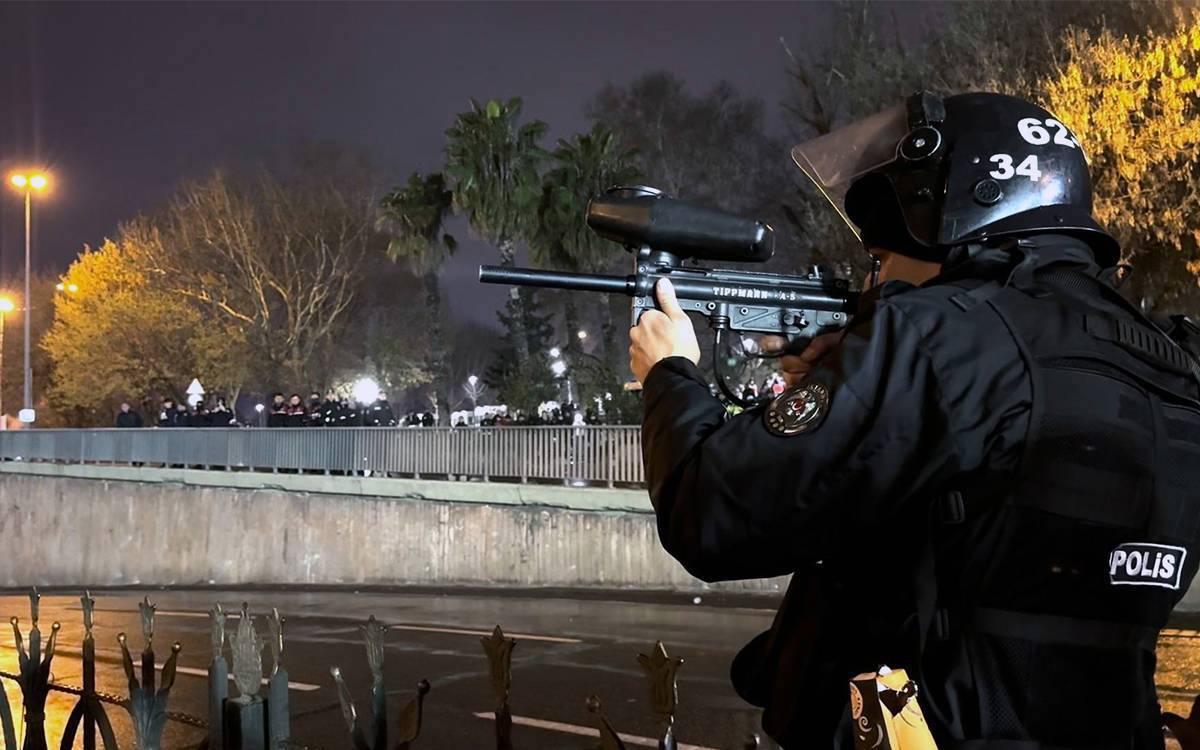
Astrologist released after two months in detention over social media post on Bahçeli’s health
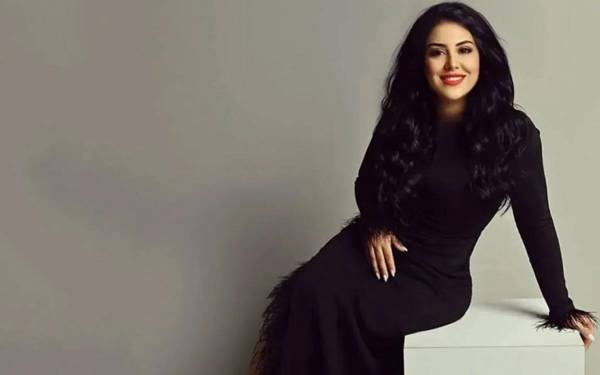
Over 100 youths released after mass arrests during İmamoğlu protests
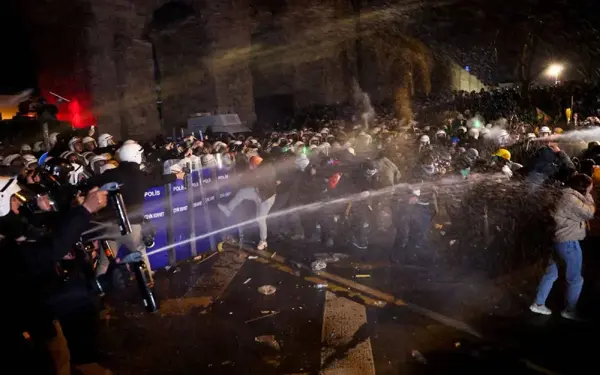
MALE VIOLENCE MONITORING REPORT MARCH 2025
Men killed 24 women in March
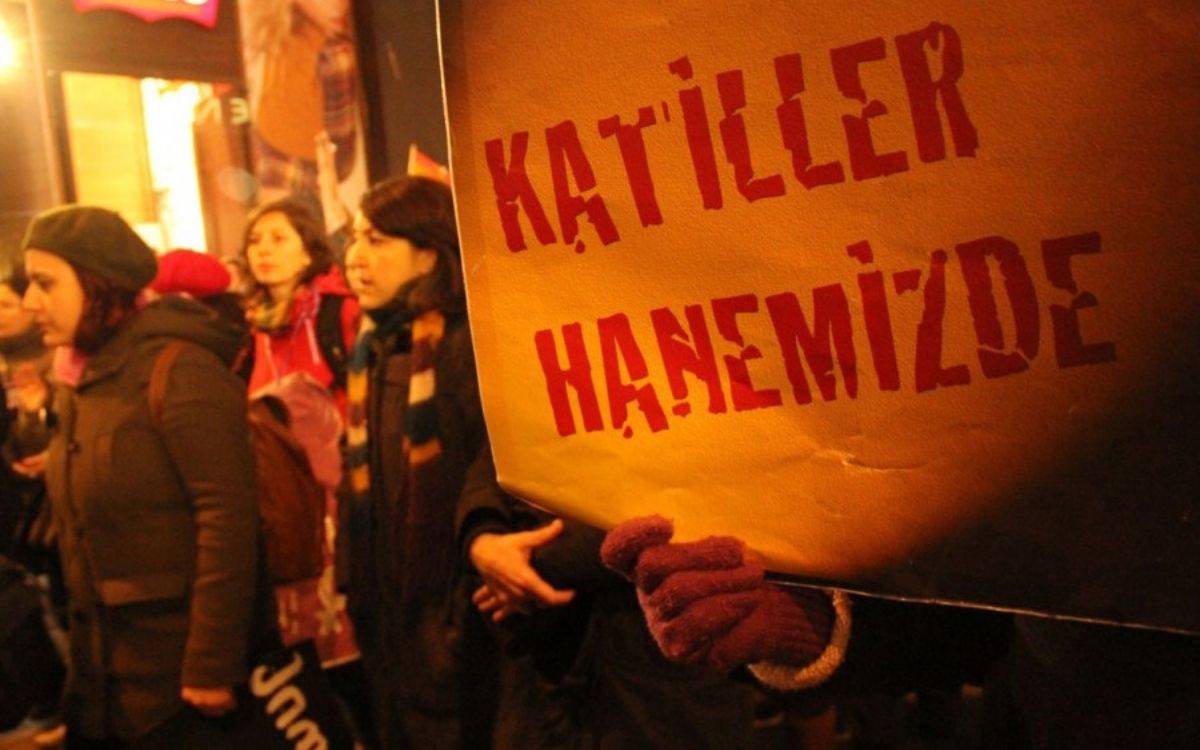
Woman alleges sexual harassment by police during İstanbul protest detention
